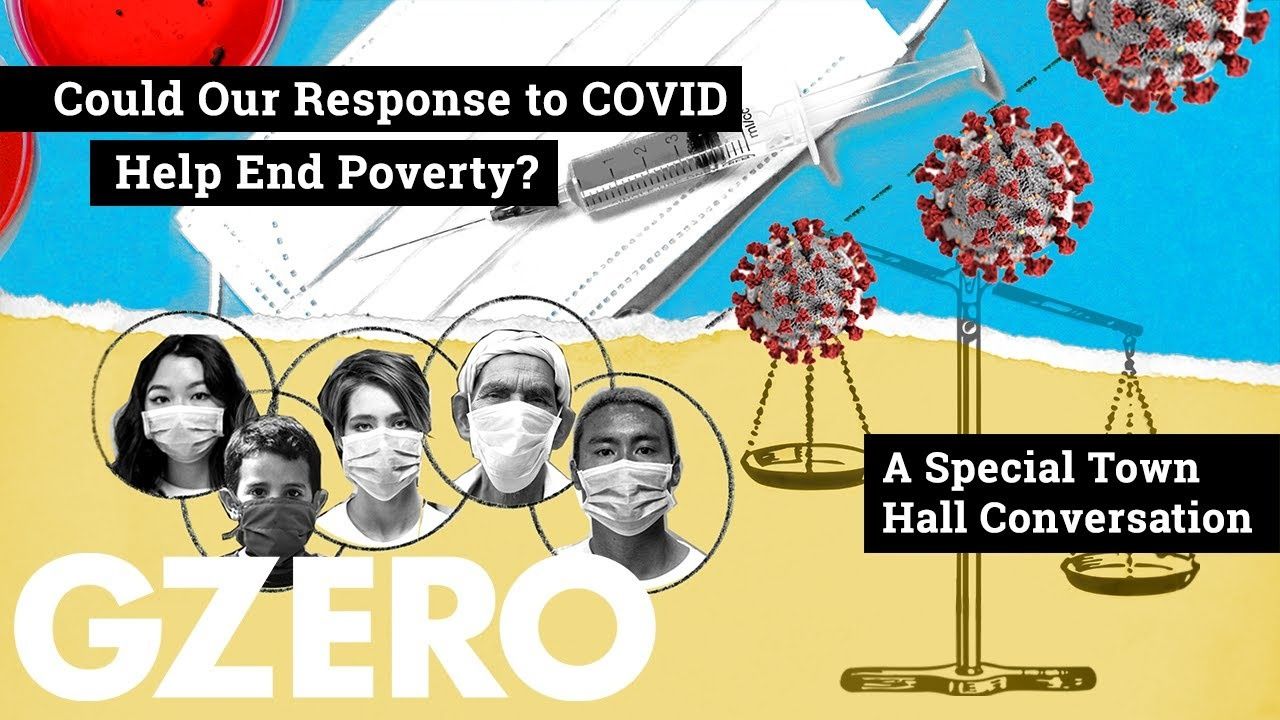Past Events
GZERO Media Town Hall: Could our response to COVID help end poverty?

Could Our Response to COVID Help End Poverty? | A GZERO Media Town Hall

GZERO Media, in partnership with the Bill and Melinda Gates Foundation and Eurasia Group, today hosted its first virtual town hall on how to fight global poverty amid the coronavirus pandemic.
The panel featured Gates Foundation CEO Mark Suzman, Eurasia Group and GZERO Media President Ian Bremmer, and Vera Songwe, Executive Secretary of the United Nations Economic Commission for Africa. The conversation was moderated by Africa No Filter's Moky Makura.
Watch the full video above.
Has the pandemic strengthened or weakened multilateral organizations?
Songwe:
How do we ensure that if a COVID-19 vaccine is developed, it can reach every corner of the globe?
Suzman:
Should low- and middle-income countries be entitled to debt relief amid the pandemic?
Bremmer:
With the US leading production and China driving new reactor development, Bank of America breaks down the who, what, where, when, and why behind nuclear’s return. Stay ahead of global energy trends with Bank of America Institute.
Chris, an Army veteran, started his Walmart journey over 25 years ago as an hourly associate. Today, he manages a Distribution Center and serves as a mentor, helping others navigate their own paths to success. At Walmart, associates have the opportunity to take advantage of the pathways, perks, and pay that come with the job — with or without a college degree. In fact, more than 75% of Walmart management started as hourly associates. Learn more about how over 130,000 associates were promoted into roles of greater responsibility and higher pay in FY25.
Last week, at the Munich Security Conference, a group of global technology providers, including Microsoft, announced the Trusted Tech Alliance — committed to shared, verifiable principles for trusted, transparent, and resilient technology across borders. At a moment of economic volatility and zero-sum technological competition, countries and customers are demanding greater accountability from technology providers. The Alliance addresses this by bringing together companies from across Africa, Asia, Europe, and North America around shared commitments: transparent governance, secure development practices, supply chain oversight, open digital ecosystem, and respect for the rule of law — ensuring the benefits of emerging technologies strengthen public trust while driving job creation and economic growth. Explore the Trusted Tech Alliance here.